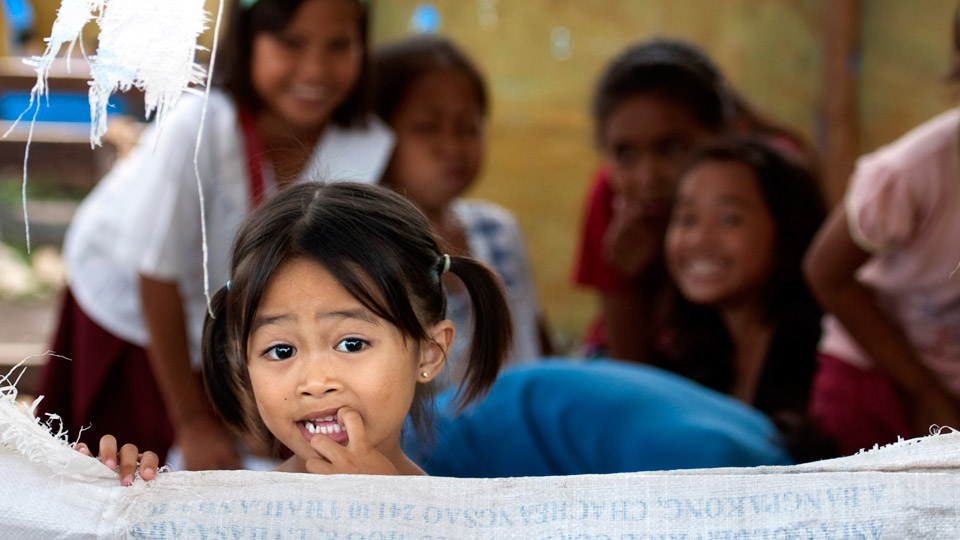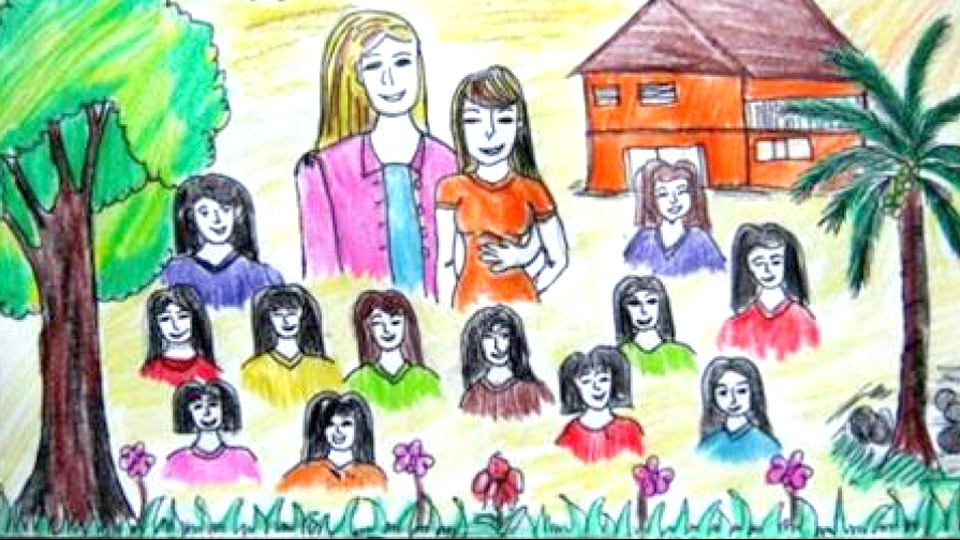Our girls
They all have a traumatic past: Malisa Home currently provides a safe and loving home to 28 girls.
Additional Malisa stories
Jennica’s* mother is raising her two children alone, in a suburb of Cagayan de Oro. Even with two full-time jobs, she doesn’t earn enough to support them. So Jennica has to leave school and take a job in a nearby factory to earn an additional income to support the family. But that is not enough either. Jennica’s grandmother brings her, with questionable intent, to clubs in red-light districts in the city. Shortly thereafter, Jennica received a text message from a stranger, with a dubious job offer in Manila. Her mother forced her to take the job. As Jennica was leaving the house to begin the journey to Manila, an observant neighbor notified Malisa Home. At Malisa Home, Jennica feels comfortable right away, and puts her artistic talents to use in decorating the shelter. Jennica designed almost all the murals at Malisa Home, and painted them together with the other girls there. In 2013, Jennica successfully completed high school and has enrolled in college for 2014, for a bachelor of arts degree in communication sciences. Today, whe won’t fall for any more of traffickers’ tricks.

Malisa Home enables the girls to look optimistically into the future.
For Rubelyn* as well, Malisa Home is a way out of a life seemingly predestined for prostitution. The young woman comes from a poor suburb near Cagayan de Oro. Because her parents cannot feed the family with the income from their jobs, her father earns extra money as a pimp. When Tropical Storm Sendong devastated the area in 2011 and the family’s financial situation worsened drastically, Rubelyn was taken out of school and forced to work as a prostitute. Rubelyn’s mother sent her to Malisa Home to protect her from the plans that her father had for her. Rubelyn has lived in Malisa home since then. She has also, while living at Malisa Home, gotten a high-school diploma and enrolled in college to become a primary-school teacher. She does not want to return to live with her parents, but now she can look with confidence to the future– a future that she can determine for herself.
Little Mayari* was abandoned by her single mother in a park, and had to survive there on her own for several years. During this time, Mayari had only one “friend”: a 12-year-old girl, who looked after Mayari, but also forced Mayari to meet with various young men who had money and to have sell her body to them. When Mayari arrived at Malisa home, a structured daily routine was a foreign concept to her, as were “normal” aspects of life, such as sleeping in a bed. After her first year at Malisa Home, Mayari is once again a happy child. She laughs a lot and has gotten accustomed to the social rules of living with others. She is making steady progress in school, although sitting still for long periods is difficult for her. In the meantime, she can read and write, and can also communicate in English.
* The girls’ names have been changed for their own protection.



